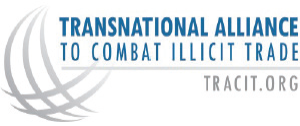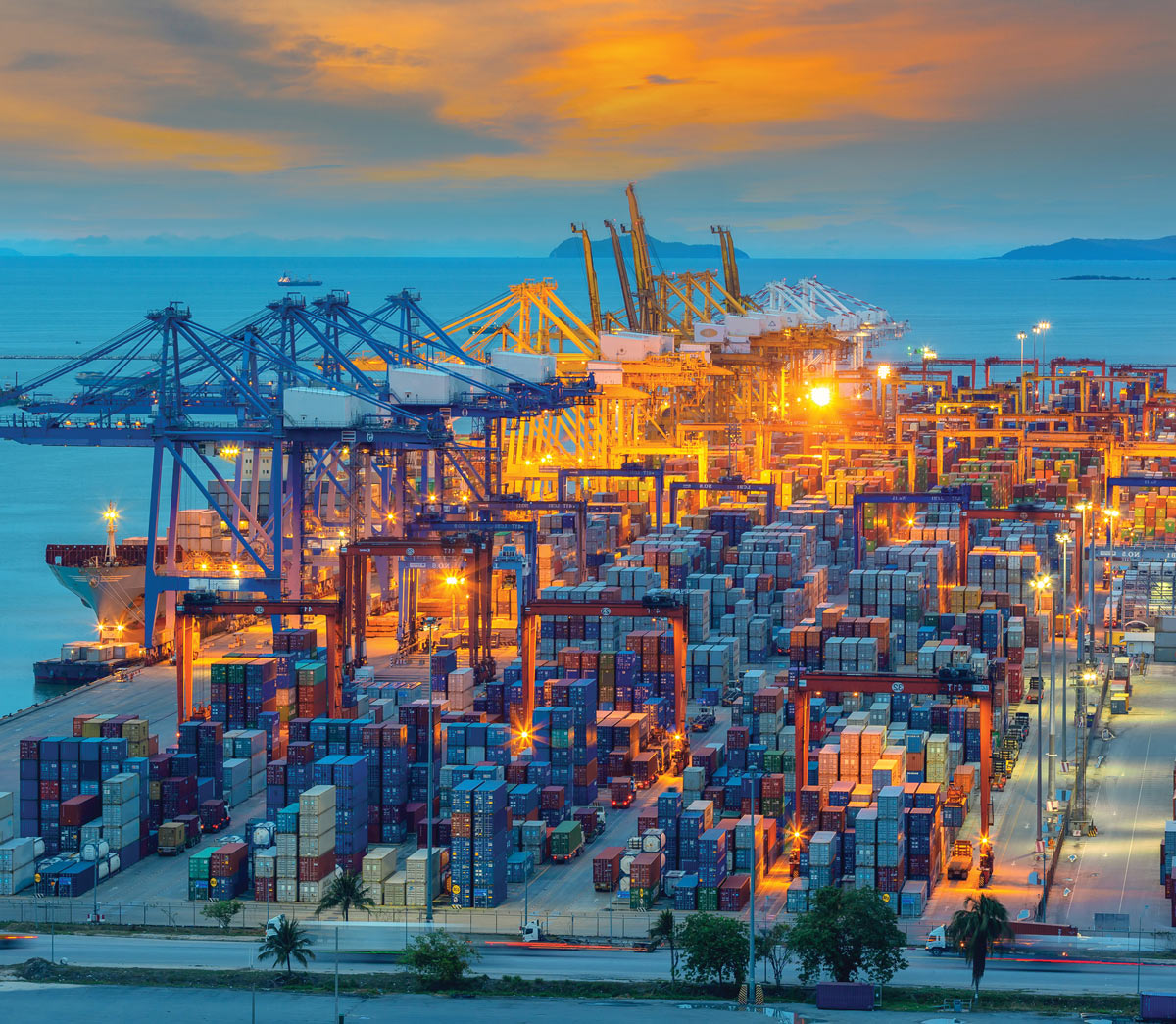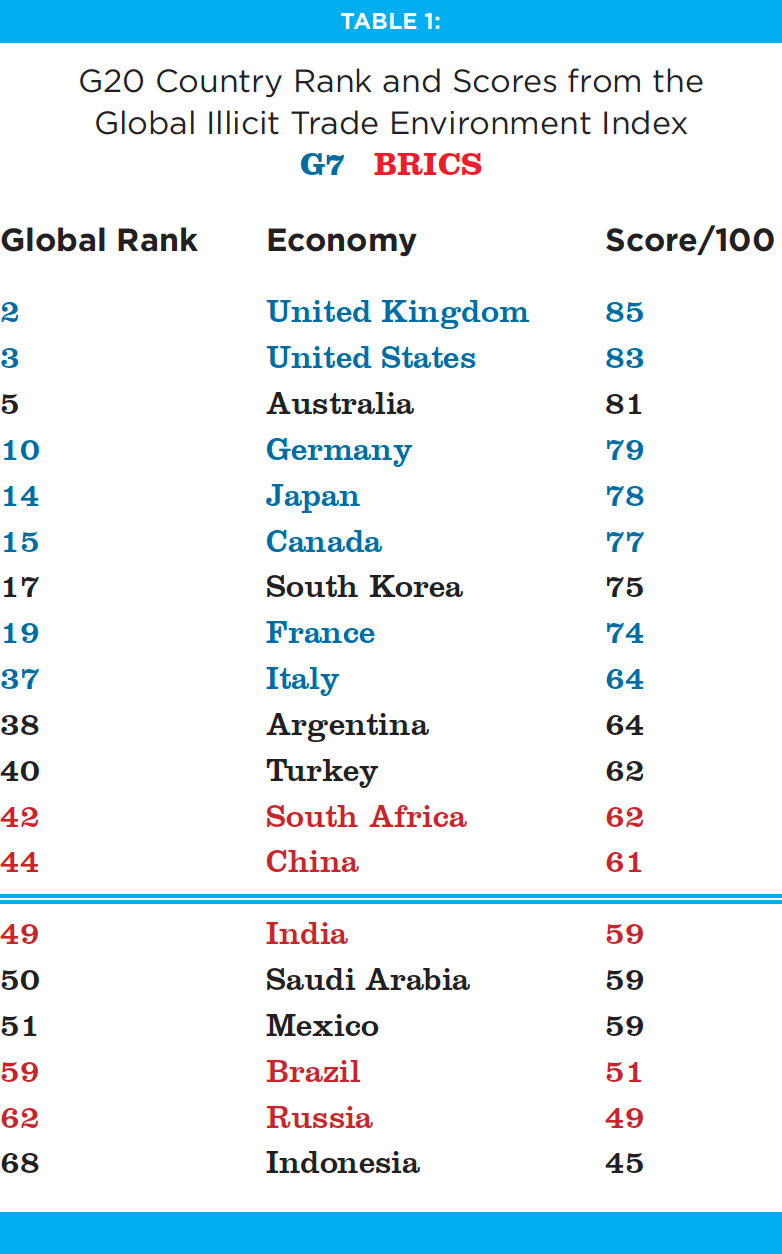tracit.org
branded story

he escalating illicit economy is a major impediment to global economic and social development. From smuggling, counterfeiting and tax evasion, to the illegal sale and possession of goods, services, humans and wildlife, governments are losing billions in tax revenues, consumers are exposed to unregulated, unsafe products and society is witness to a steady unraveling of peace, security and rule-of-law.
Illicit trade has a particularly debilitating effect on legitimate business and the business stakeholders represented in the B20. Unfair competition from shady operators side-stepping regulations erodes opportunities for growth, local productivity and employment. At the same time, business incurs higher costs due to reputational damage and rising supply chain compliance, security and insurance costs.
In addition to distorting markets and draining public revenues, illicit trade undermines society’s efforts to achieve the United Nations’ Sustainable Development Goals (SDGs) with negative impacts on consumers, workers and the environment.
The Osaka G20 Summit presents an important opportunity for Leaders to collectively elevate priority attention to illicit trade as a prerequisite to achieve the 2030 Agenda for Sustainable Development. Without concurrent efforts to combat illicit trade—and address associated corruption and organized crime—the global community will not be able to achieve the overarching sustainable development goals to end poverty, protect the planet, and ensure that all people enjoy peace and prosperity.
Out of 84 economies ranked in the Index, only eight G20 countries are among the top 20. These include: United Kingdom, which is ranked 2, followed by United States ranked 3. Australia is 5; Germany is 10; Japan is 14; Canada is 15; South Korea is 17 and France is ranked 19.
The leadership, economic power and advanced governance available throughout the G20 would suggest a greater concentration of higher scores near the top of the Index. Nonetheless, 12 G20 members fall considerably outside the top 20: Italy is ranked 37; Argentina is 38; Turkey is 40; South Africa is 42; China is 44; India is 49; Saudi Arabia is 50; Mexico is 51; Brazil is 59; Russia is 62 and Indonesia is ranked 68. (see Table 1)
Of these, South Africa, China, India, Saudi Arabia, Mexico, Brazil, Russia and Indonesia fall into the bottom half of the Index rankings. Notably, this list includes all the BRICS countries.
Findings from the Index demonstrate that while some G20 economies have established policies, legislation, action plans and initiatives to combat illicit trade, others lag considerably, on some or all these dimensions. Given the size and importance of the G20 – a mix of the world’s largest advanced and emerging economies that represents two-thirds of the world’s population and 85% of global GDP – it is concerning that so many of its members are underperforming on addressing illicit trade.
Now is the time for the G20 to assert its leadership and press for implementation and enforcement of all its standing declarations against illicit trade.
The B20 Tokyo Summit, held under the overarching theme “Society 5.0 for SDGs”, is a timely opportunity for the business community to emphasize how illicit trade is a malignant threat to many of the world’s most valued industries and a significant impediment to the attainment of the SDGs.
Addressing illicit trade is a cross-policy, cross-border, responsibility with impacts across the B20’s agenda. Last year, B20 Argentina took some steps to address illicit trade by calling on the G20 to “support the efforts by the OECD and the World Customs Organization [to raise] Customs’ awareness on illicit trade and its links to breaches in integrity.”2 Addressing integrity in Customs sits at the nexus of business priorities on trade facilitation and combatting illicit trade. Ineffective and inefficient customs can negatively impact the benefits of international trade, trust in government, as well as sound economic and public sector reforms.

out legitimate economic actors.
Consequently, illegal trade must be addressed within the rules governing legal trade. The World Trade Organization’s (WTO) trade agenda should raise global awareness of the significant trade distortions presented by illicit trade, especially given the WTO’s explicit mission to support international trade. Moreover, while regulations addressing illicit trade have been expanding at the national level, little has been done to harmonize these at the international level. With the backing of G20 Leaders, the WTO should address the relationship between illicit trade and current WTO rules, evaluate the gaps and promote new, collective instruments or rule changes to stop illegal trade.

Conversely, illegal agri-food trade has a direct negative impact on ensuring fair, safe and sustainable food, as well as a well-functioning farm and global food trade system. From a business perspective, a single instance of food fraud can irreversibly destroy a brand, cause lasting industry-wide losses, decrease market share, close off export markets and even damage trust in public institutions. Pesticides and agrichemicals are an integral part of conventional agriculture, helping to maximize crop quantity and quality by reducing the pests and diseases that cause damage. However, the proliferation of illicit pesticides generates a number of serious economic, health and social impacts that undermines sustainable development, agricultural markets, farmers and national food security.
International cooperation on IPRs enforcement, including information and data sharing, should be a priority of G20 Leaders. Specifically, the G20 should create a G20 Study Group on IP Protection, which would seek the views of G20 governments on areas for collaboration on IPR enforcement, including the sharing of best practices and discussions on common policies to protect consumers from harm.
Governments, however, need to improve regulatory structures; set deterrent penalties, rationalize tax policies; strengthen capacity for more effective enforcement; and educate consumers. This is a matter of urgency and G20 efforts to fight illicit trade should be considered investments that pay tangible dividends to economic development and global security.
The Transnational Alliance to Combat Illicit Trade is responding to this challenge by leading business engagement with national governments and intergovernmental organizations to ensure that private sector experience is properly integrated into rules and regulations that will govern illicit trade.
TRACIT represents companies and organizations that have a shared commitment to combatting illicit trade and ensuring the integrity of supply chains. Addressing illegal trade – whether that be smuggling of alcohol, illegal logging, counterfeit pesticides or petroleum theft and trafficking in persons – presents common challenges for a growing number of industries and governments.
- Based on a global survey of 11,000 business and human resource leaders, as well as interviews with executives https://www.tracit.org/featured-project-global-illicit-trade-index.html
- B20 Argentina (2018). Integrity and Compliance Taskforce Policy Paper, page 9. Available at https://b20argentina.info/Content/Images/documents/20180918_210524-B20A%20IC%20Policy%20Paper.pdf

